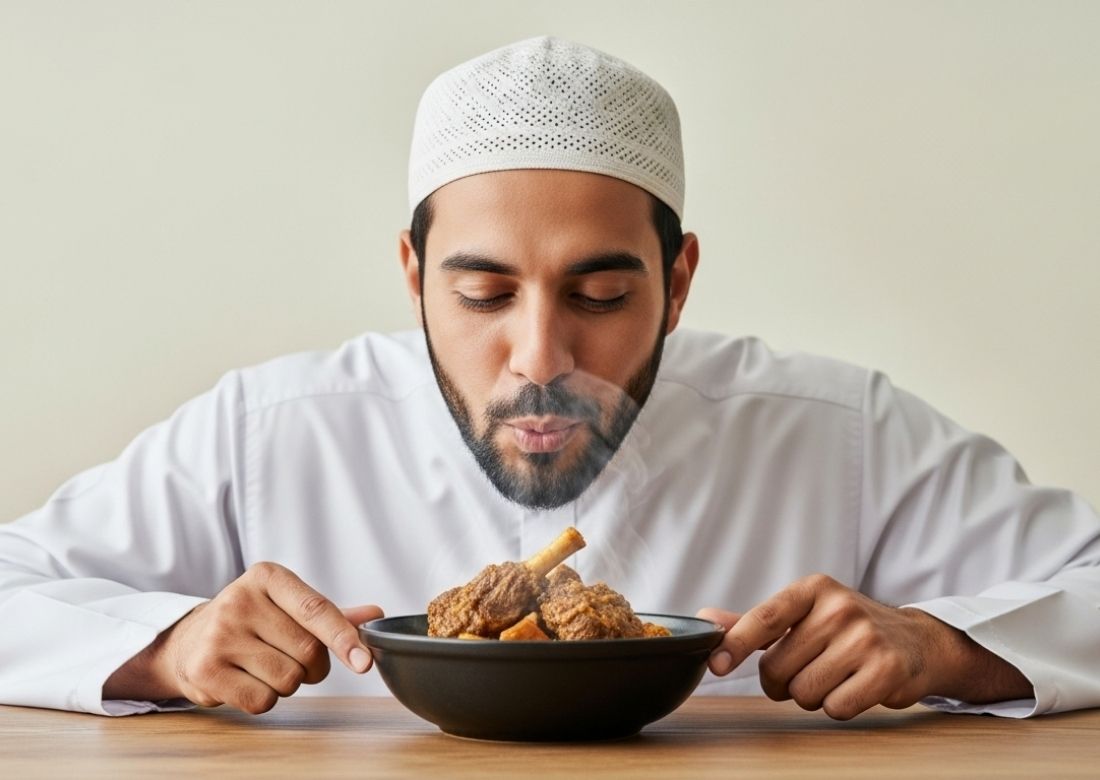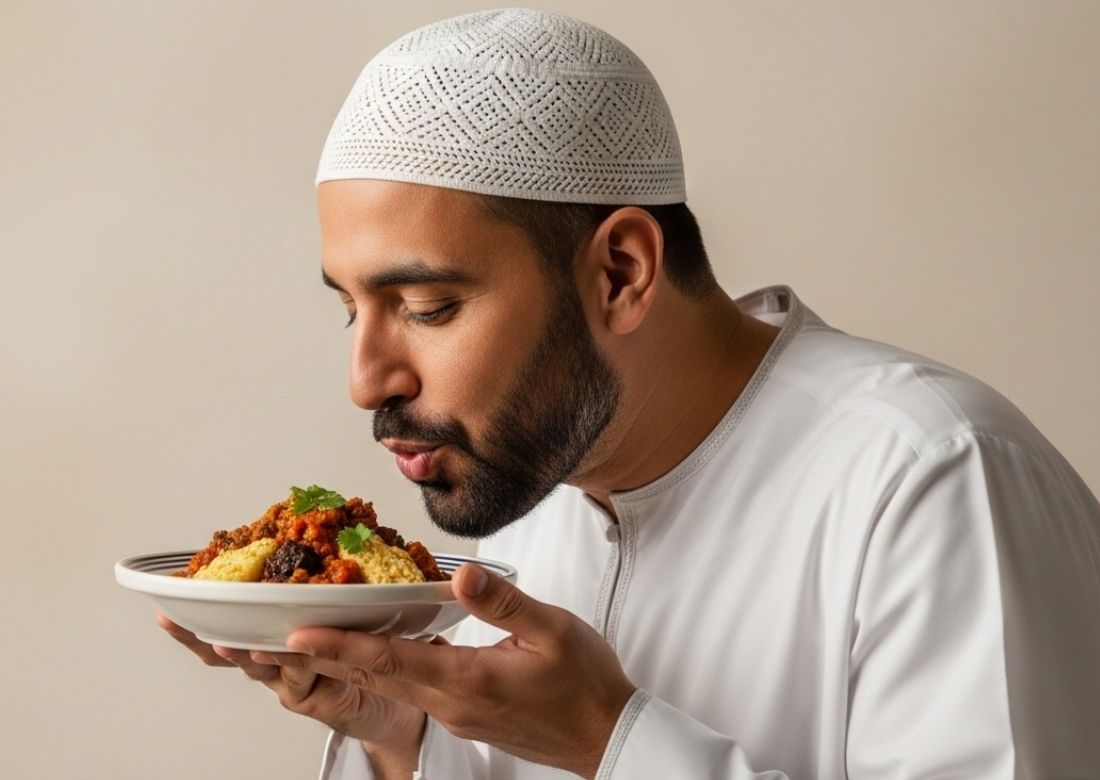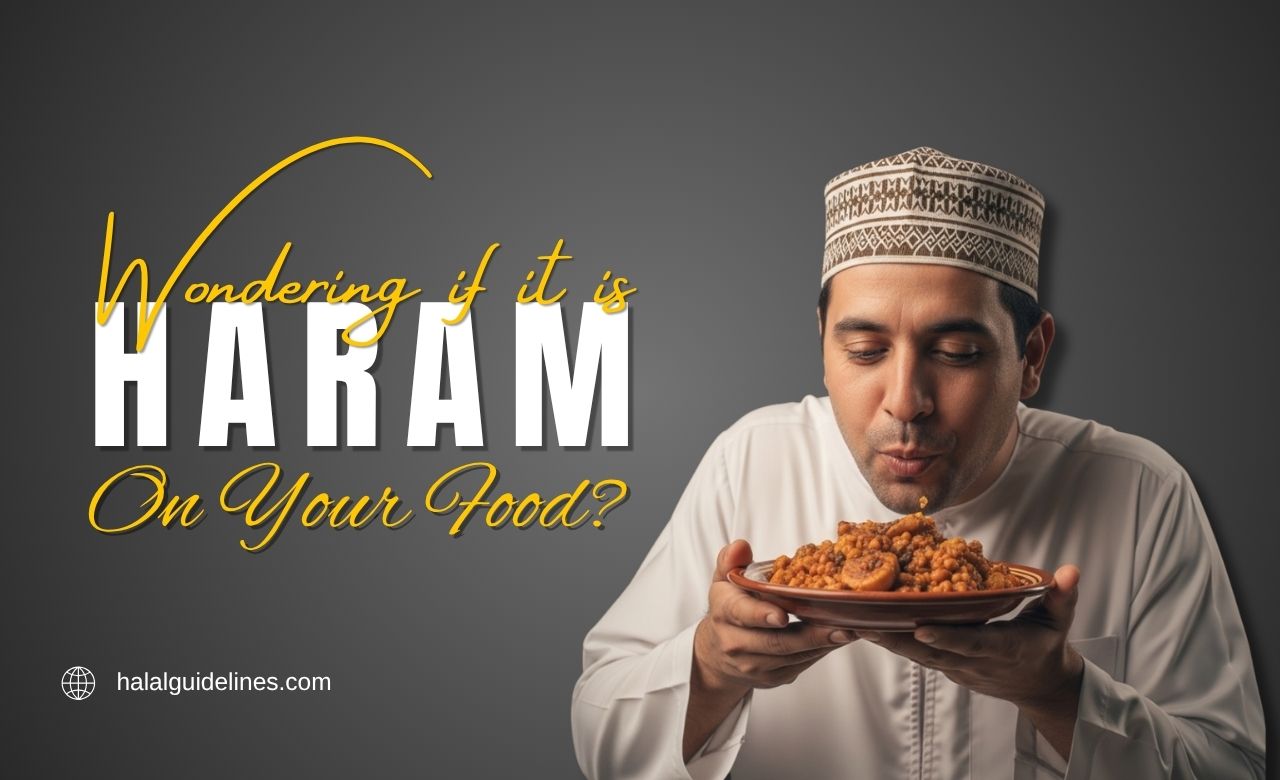Islamic teachings emphasize respect and cleanliness in all matters, especially regarding food. While the act of blowing on food isn’t forbidden by strict law (haram), it’s still not a recommended practice due to health, etiquette, and religious reasons.
Why Blowing on Food Is Considered Makruh (Disliked)

The reason blowing on hot food or drink has more to do with cleanliness and respect than with sin. Scholars explain this using practical wisdom. When you blow on food to cool it, the air from your mouth can carry small particles, bacteria, or saliva.
These are normal microorganisms that live in your mouth and are safe inside your body, but can become harmful when exposed to hot temperatures and then re-consumed.
This behavior is also seen as poor etiquette, especially when eating with others. If you’re sharing a meal and blow on the food, it could be off-putting or offensive to someone else at the table. Islam places great importance on not causing discomfort to others, especially during communal actions like eating.
Difference Between Blowing for Blessing and Blowing to Cool

There’s an important difference that scholars have pointed out:
Blowing for Ruqyah
Spiritual healing, or after reciting the Quran, is permitted. For example, reciting verses over water and lightly blowing on it is considered a practice of blessing, not poor manners.
Blowing to Cool Down Food or Drink
It is a practice that is discouraged due to hygiene and etiquette concerns. When someone blows on hot food or drink, it releases air containing natural bacteria and moisture from the mouth onto the food. This can affect cleanliness and may be unpleasant, especially when sharing meals with others.
The mouth carries bacteria and saliva, and blowing spreads these particles onto the food or drink, which is neither hygienic nor respectful in public settings.
Evidence from Hadith on Blowing On Food or Drink
There are narrations from the Prophet Muhammad (S.A.W) that advise against blowing on food and drink.
One such narration is reported in Jami` at-Tirmidhi (Hadith 1887):
“The Messenger of Allah ﷺ forbade blowing into drinks.”
Reference: (Jami` at-Tirmidhi, Book 27, Hadith 1887)
Although the hadith discourages the action, it does not make it haram. Scholars interpret this as a sign that it is disliked, not forbidden.
The Prophet (S.A.W) highlights manners in all aspects of life. His guidance in this area shows us how to maintain both personal hygiene and respectful conduct.
Observing Islamic Manners During Mealtime or Drinking
Rather than blowing on your food or drink, which is considered makruh (disliked), it is better to exercise patience and let it cool down on its own. This approach aligns with Islamic teachings of hygiene, respect, and thoughtful behavior, especially when sharing meals with others.
One should follow these simple and respectful habits:
- Wait for the food to cool naturally.
- Use a spoon to stir the food and allow steam to escape.
- Serve food in smaller portions that cool quicker.
- If drinking something hot, take small sips and wait.
These actions not only align with Islamic teachings but also demonstrate respect for others at the table and maintain hygiene.
Practical Wisdom from Scholars
The wisdom behind this guideline is clear. The mouth contains many beneficial bacteria, known as normal flora, which help in digestion. These bacteria are harmless while inside the mouth, but can cause problems if blown onto hot food, where heat may alter their nature and cause contamination. When this food is then consumed again, it could introduce unhealthy elements back into the body.
Furthermore, if done in front of others, especially in shared meals, blowing on food may disturb or offend fellow diners. Islam encourages us to be considerate in all public and private behaviors.
Here is the complete video of him on this topic
Ruling Regarding Blowing on Food: Disliked, Not Forbidden
- Blowing on food or drink is not haram, but it is makruh (disliked).
- It goes against good manners and hygiene, which Islam values highly.
- The Prophet (S.A.W) discouraged it to promote better health and etiquette.
- Blowing for ruqyah or Quranic blessings is not the same and is allowed.
Being mindful of these practices is a way to follow the Sunnah with love and respect. It’s not just about following rules but about living with dignity, cleanliness, and kindness toward others.
Want to Learn More About Halal Practices?
If you’re interested in deepening your understanding of halal living, from food preparation to certification, we’re here to help. Check out our Halal Certification Service at Halal Guidelines. We provide guidance and certification support to businesses and individuals striving to maintain halal integrity in every aspect.
Let us help you stay informed and confident in your journey to practicing Islam with clarity and sincerity.







